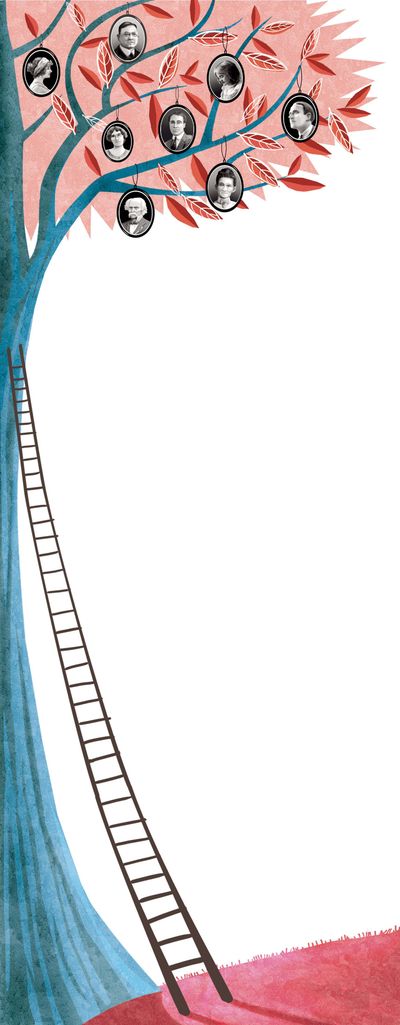Tracing your family tree is not that difficult, experts say

Cecily Kelly’s grandfather died when Kelly’s mom was just 2. Her mother doesn’t remember him, and Kelly never met him, of course, but Kelly has seen his draft-card signature and perused his school records. “I have found all sorts of things that make him alive,” Kelly said.
Kelly’s long-deceased grandfather is much more than an unknown ancestor, thanks to genealogy. Kelly believes genealogy can strengthen families and individuals, in part by showing people the hardships their ancestors endured – and survived.
This weekend, Kelly, secretary of the Washington State Genealogical Society, will be surrounded by others who share her passion, because the state group is holding its annual conference in Spokane, hosted by the Eastern Washington Genealogical Society. More than 200 genealogy buffs are expected.
Genealogy can seem complicated, but Kelly said it’s actually quite easy to get started. And once people begin, they can learn from genealogy pros all over the world, because sharing information is part of the genealogy culture.
Kelly offered five tips for neophytes interested in genealogy.
Talk to every living member of your family.
“The sooner you do that, the better,” she said. “And take notes. If you can, record their voices.”
Every family has stories passed along as rumor, and older people in the family might be able to shed light on the truth behind the rumor.
Lots of Cherokee “princesses” seem to be rumored in people’s backgrounds, Kelly said, even though the ancient tribes didn’t have “princesses,” as the word is understood today.
“But there may be in fact a Native American presence in your family,” Kelly said.
For those who find it difficult to ask questions of older people, Kelly offers three to get started:
•What do you remember about your grandparents?
•What was school like when you were children?
•What was Christmas like when you were little?
Draw a basic family tree.
Elaborate family trees with branches stretching far back in history can intimidate the genealogical novice. But you can start drawing family trees simply by putting yourself in the middle.
“Then put in your mother and father and their parents,” Kelly said. “And then the locations where they lived.”
Document your sources.
“When you find something, write where you found it, because you might not be able to find it again,” Kelly said. “It’s just like every term paper you’ve ever done.”
Freely share your information.
Web sites with message boards, where people share information, abound on the Web. For instance, Ancestry.com hosts more than 161,000 boards with 17 million posts.
Plug “Spokane history” into the message board center at Ancestry.com, and you’ll find 824 messages from people searching out information – or sharing information – about Spokane people and events, past and present.
One post reads: “I have an adopted brother who was born in the Sacred Heart Hospital in Spokane on Oct. 7 1943 by Dr. Ray Pillow. His mother was from the Mead area. He was the fifth child of the family. He is not looking for his family but due to a medical condition in his grandchild his daughter would like to find the medical history of his family.”
When you discover information about an ancestor, there could be “150 people who might be just as closely related,” Kelly said.
Don’t give up.
“Even if you hit a brick wall and can’t get further back than that person, keep trying,” Kelly urged.
Usually, something breaks open, and in the meantime you’ll learn a lot about history.
For instance, if a 35-year-old man or woman got interested in genealogy today and searched back five generations “that would take many people back to the Civil War or at least the 1880s,” Kelly said.